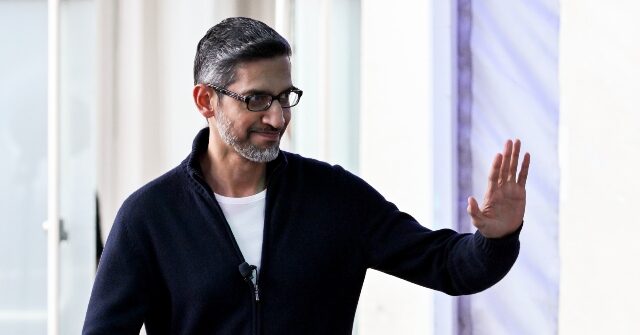Google CEO Sundar Pichai has cautioned that while the current surge in AI investment represents an “extraordinary moment,” there are also some elements of “irrationality” in the AI boom.
In an exclusive interview with BBC News, Google CEO Sundar Pichai addressed concerns about a potential AI bubble and its potential impact on companies like Google. Pichai acknowledged that if the AI bubble were to burst, no company would be immune to the consequences, including Alphabet.
“I think no company is going to be immune, including us,” Pichai stated, while also emphasizing that Google’s unique model of owning its full stack of technologies, from chips to data and AI models, puts it in a better position to weather any market turbulence.
Pichai’s comments come amidst growing scrutiny of the AI market, with Alphabet’s shares doubling in value over the past seven months to reach $3.5 trillion as investors gain confidence in the company’s ability to compete with rivals like OpenAI, the creator of ChatGPT. However, some analysts have expressed skepticism about the complex web of $1.4 trillion in deals surrounding OpenAI, which is expected to generate revenues this year that are less than one-thousandth of the planned investment.
Breitbart News recently reported on one prominent investor who believes the AI bubble is at risk of bursting, Michael burry of The Big Short fame:
In a series of 13F regulatory filings released on Monday, Michael Burry’s Scion Asset Management revealed that it had bought put options on Nvidia and Palantir, indicating a bearish stance on the two companies. The disclosures came just days after Burry posted a cryptic warning to retail investors about market exuberance on social media, including an image of his character from The Big Short movie and a warning that “sometimes, we see bubbles.”
These concerns have led to fears of a repeat of the dotcom boom and bust of the late 1990s, where the values of early internet companies surged before the bubble ultimately burst, resulting in job losses and a drop in share prices that impacted people’s savings and pension funds.
Pichai acknowledged the potential for overinvestment in AI, drawing parallels to the early days of the internet. “We can look back at the internet right now. There was clearly a lot of excess investment, but none of us would question whether the internet was profound,” he said. “I expect AI to be the same. So I think it’s both rational and there are elements of irrationality through a moment like this.”
Despite these warnings, Alphabet remains committed to investing in AI. Breitbart News recently reported that Google will invest $40 billion in three new AI data centers located in Texas.
However, Pichai also highlighted the immense energy needs of AI, which accounted for 1.5 percent of the world’s electricity consumption last year. He emphasized the need for action to develop new energy sources and scale up infrastructure to support the growth of AI without constraining economies.
The rapid advancement of AI is also expected to have significant impacts on the workforce. Pichai described AI as “the most profound technology” humankind has worked on and acknowledged that it will create societal disruptions and evolve certain jobs. However, he believes that those who adapt to AI will have better opportunities in their professions, regardless of the field.
“It doesn’t matter whether you want to be a teacher [or] a doctor. All those professions will be around, but the people who will do well in each of those professions are people who learn how to use these tools,” Pichai stated.
Read more at BBC News here.
Lucas Nolan is a reporter for Breitbart News covering issues of free speech and online censorship.


